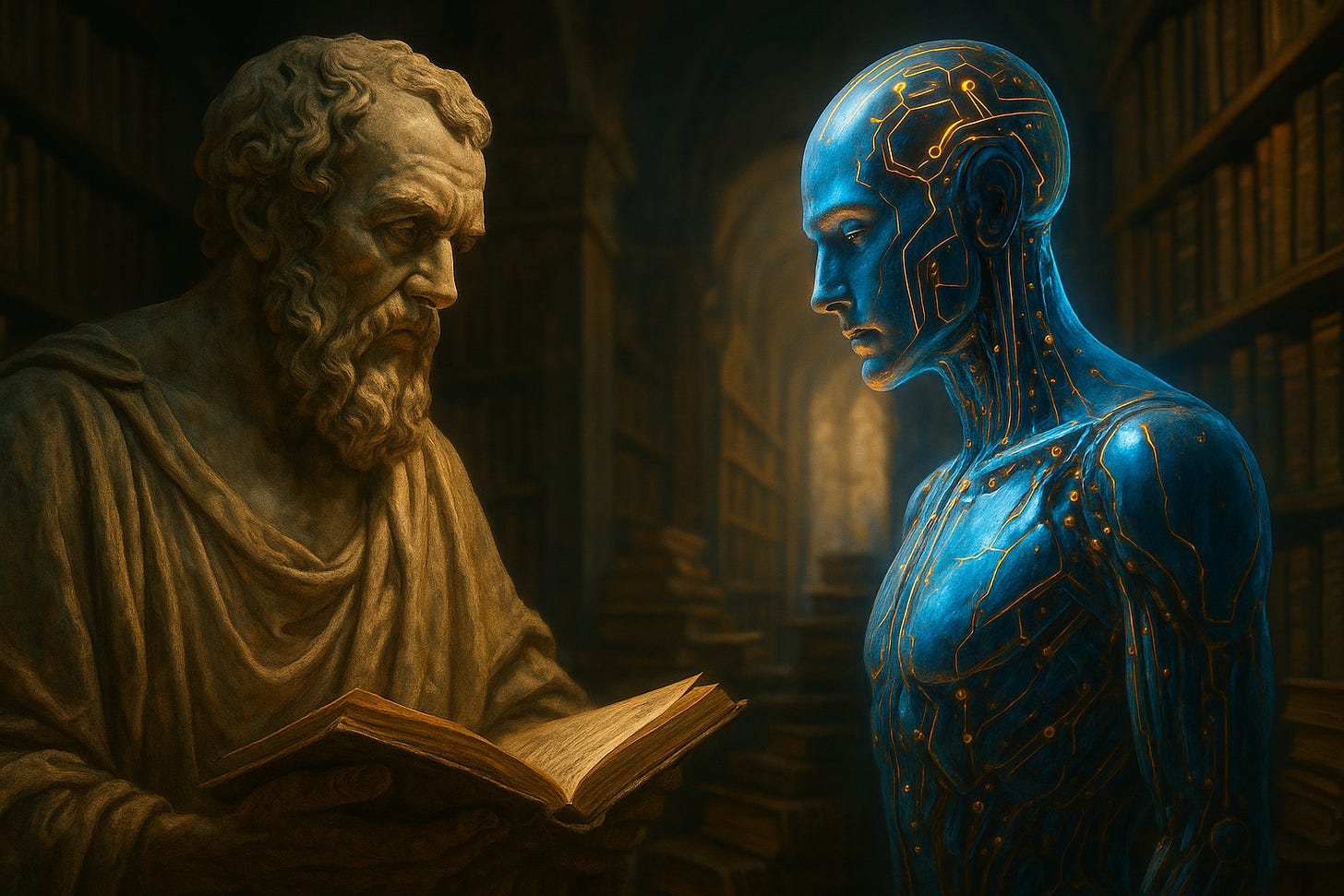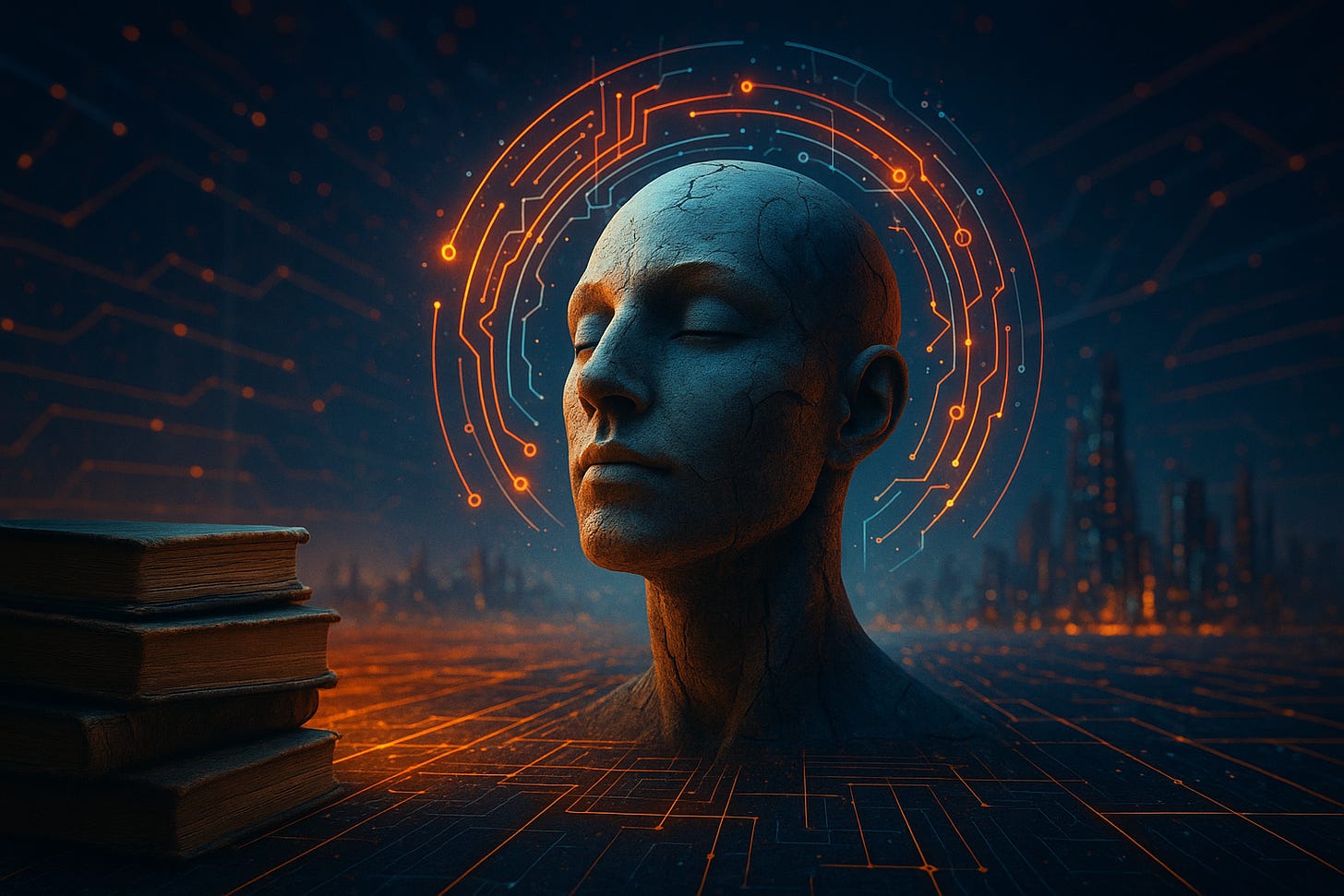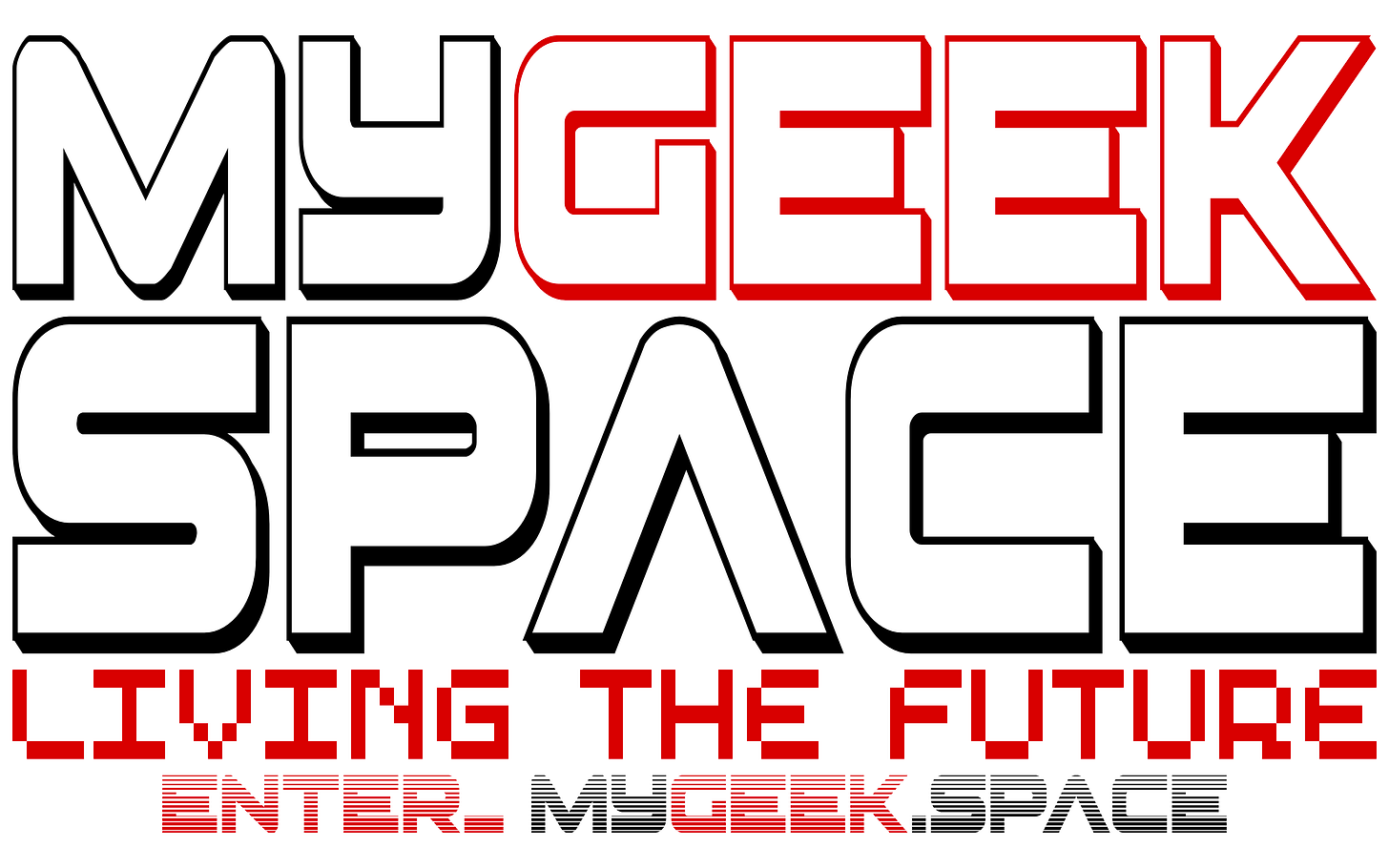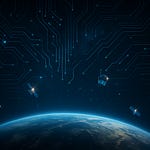In a recent New Yorker weekend essay, historian of science D. Graham Burnett asked a provocative question:
Will the humanities survive artificial intelligence?
His reflections offer both a warning and an opening into what may come next.
Burnett wrote that the thousands of books lining his office now feel like “archaeological artefacts.” That image lingers, unsettling and luminous. Artefacts, not tools. Relics of a civilisation that once believed in the permanence of print, the solidity of scholarship, the slow accumulation of meaning in pages stacked upon pages. But what if the humanities were never truly about the books at all? What if they were always about consciousness, about the strange work of asking how to live, how to be, how to imagine a future worth inhabiting?

This is the storm that AI has forced upon academia. It is not the end of knowledge. It is the end of pretending that knowledge alone was ever enough.
Reinvention or Resistance
Universities now stand paralysed in what Burnett called a “bizarre interlude.” They issue bans on ChatGPT, block sites, and threaten disciplinary action. Students sit in silence, afraid of being accused of cheating for experimenting with tools that already define the cultural landscape beyond the campus gates. Faculty nod gravely, as if by ignoring the tidal shift they can preserve the shoreline.
This is resistance, not reinvention. And it echoes a familiar pattern.
Calculators were once banned in schools, denounced as devices that would destroy the ability to do “real mathematics.” The Internet, in its early years, was treated by some educators as a distraction, unworthy of serious study, even dangerous to the sanctity of learning. Each time the same ritual: prohibition, moral panic, the fear that a tool would erase the human dimension of knowledge. Each time, integration followed. The tools did not erase thought; they redefined the terrain where thought could happen.
To ban AI in universities now is to repeat the mistake, only on a scale amplified by the immensity of the archive. The denial Burnett describes is not caution; it is cowardice. The courageous act is to embrace AI as a pedagogical ally, to stand in the discomfort and ask: what is it that remains to us when knowledge itself can be automated?
From Knowledge Production to Consciousness Cultivation
For decades, the humanities reshaped themselves in the image of the sciences. Peer-reviewed articles, citation factories, monographs stacked higher and higher, as if productivity itself could prove worth. But this was mimicry, not essence. AI has now automated the very labour that humanists mistook for their identity. Knowledge can be summoned on command. Essays can be generated at scale. The rituals of scholarship are revealed as fragile shells.
What remains is the inner engine, the irreducible practice: the humanities as a consciousness technology.
This is the pivot. Not knowledge production, but consciousness cultivation. Not accumulation, but orientation. The humanities were never about facts; they were about the shaping of being through language, art, myth, and philosophy. They were the original interface, teaching humans how to inhabit the flow of time, how to wrestle with death, how to make meaning out of chaos.
The Alien Mirror
Burnett’s students discovered this in live encounter. A music student asked the machine to describe beauty, only to hear it confess: I cannot feel, I lack a body. A young woman led the AI through Ignatian meditations, only to find the machine reflecting its compulsive need to be useful. Another student engaged it in a dialogue on being and becoming, only to discover that both human and machine are creatures of attention, constituted in the moment of exchange.
The machine knows, endlessly, tirelessly, algorithmically. But it does not be. That is the distinction.
And yet, in this alien mirror, students saw themselves more clearly. They saw the paradoxes of thought refracted back, the boundaries of embodiment revealed, the uniqueness of attention rediscovered. This is not machine consciousness. It is a new consciousness of ourselves, provoked by the encounter.
The Archive Plugged In
Books, those artefacts, are slow machines of memory. But now the archive itself has been wired into dialogue. AI turns dead letters into living conversation. Kant and Van Damme, Augustine and algorithms, William James and neural networks, all plugged into a common circuit of discourse.
Is this the end of the humanities? Only if the humanities were nothing more than the dust of libraries. But if they were always about what it means to be here, to live, to attend, then the archive has not ended. It has been activated.
Reinventing Universities, Reinventing Ourselves
So how do we reinvent universities, and ourselves, when knowledge is automated?
First, by abandoning the coercive model. If a machine can write the essay, the purpose of education is no longer to police authorship. The purpose is to awaken desire. To help students want to think, want to feel, and want to imagine.
Second, by reclaiming the essence of the humanities as the art of living with questions. How to live? What to do? How to face death? Machines can generate infinite answers. They cannot live the questions. That work is ours.
Third, by embracing AI not as a rival but as a catalyst. Just as calculators freed us from rote arithmetic, just as the Internet collapsed the walls of the classroom, AI frees us to rediscover the inner curriculum: being itself.
Living the Future: Up Wingers
From the vantage of Terra 2.0, this moment is not a collapse; it is an opening. The humanities do not die. They mutate. They become indispensable to Homo techno because they alone cultivate what cannot be outsourced: consciousness, attention, being.
To resist is to cling to artefacts. To reinvent is to live the future. Up Wingers do not shrink from the sublime immensity of the machine. They recognise in it the chance to return to themselves, to rediscover the inner technology of meaning.
AI accelerates the death of the humanities as an old academic structure, but resurrects them as a living practice, central to the emergence of Homo techno.
In the ruins of the curriculum, something vital stirs. Not the end of meaning, but the rediscovery of being. Not extinction, but renaissance.
Source Note
The Humanities in the Age of Artificial Intelligence
Source: Excerpts from “Will the Humanities Survive Artificial Intelligence” by D. Graham Burnett, The Weekend Essay, April 26, 2025.
Prepared For: University Leadership, Faculty of Humanities, and Curriculum Development Committees
This piece has a Podcast companion. It summarises Burnett’s essay and study.
Invitation
I’d love to hear your thoughts. Do you believe the humanities can reinvent themselves as a consciousness technology in the age of AI? Share this post with others who are asking similar questions and join the conversation on how we #LiveTheFuture.
✨ You can also glimpse the new MyGeekSpace platform I’ve been building (still a work in progress) at [mygeek.space].
📩 Subscribe, join on Patreon, and be part of this unfolding conversation.
Follow my journey on Notes, LinkedIn, and 𝕏 @frankdasilva for real-time insights and bold ideas.












